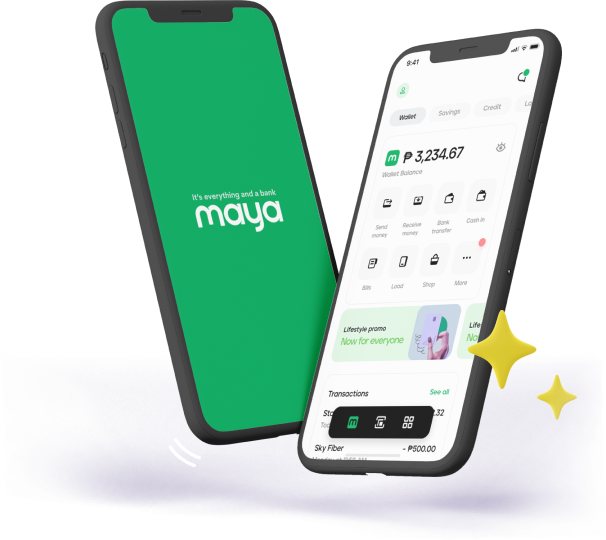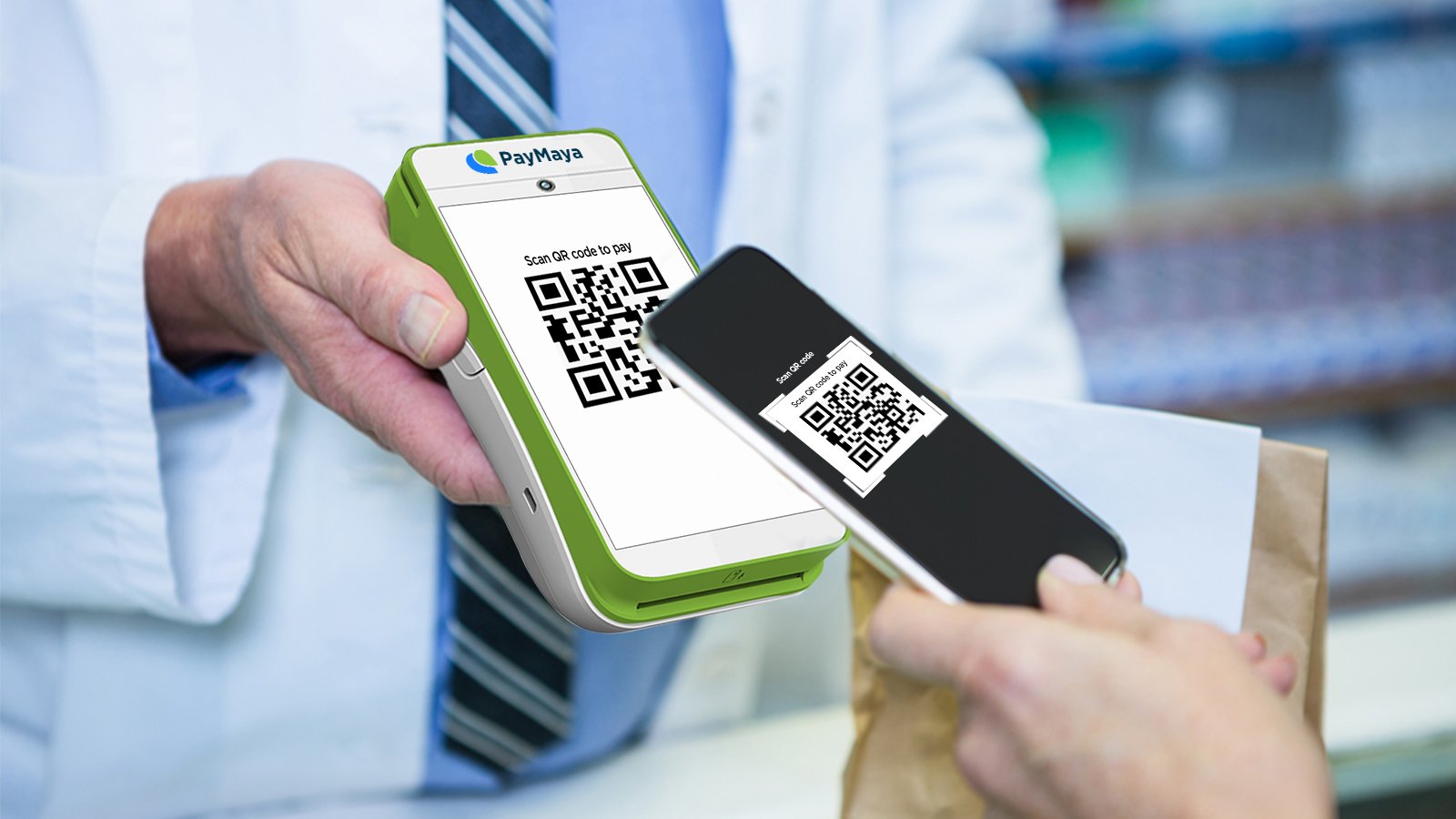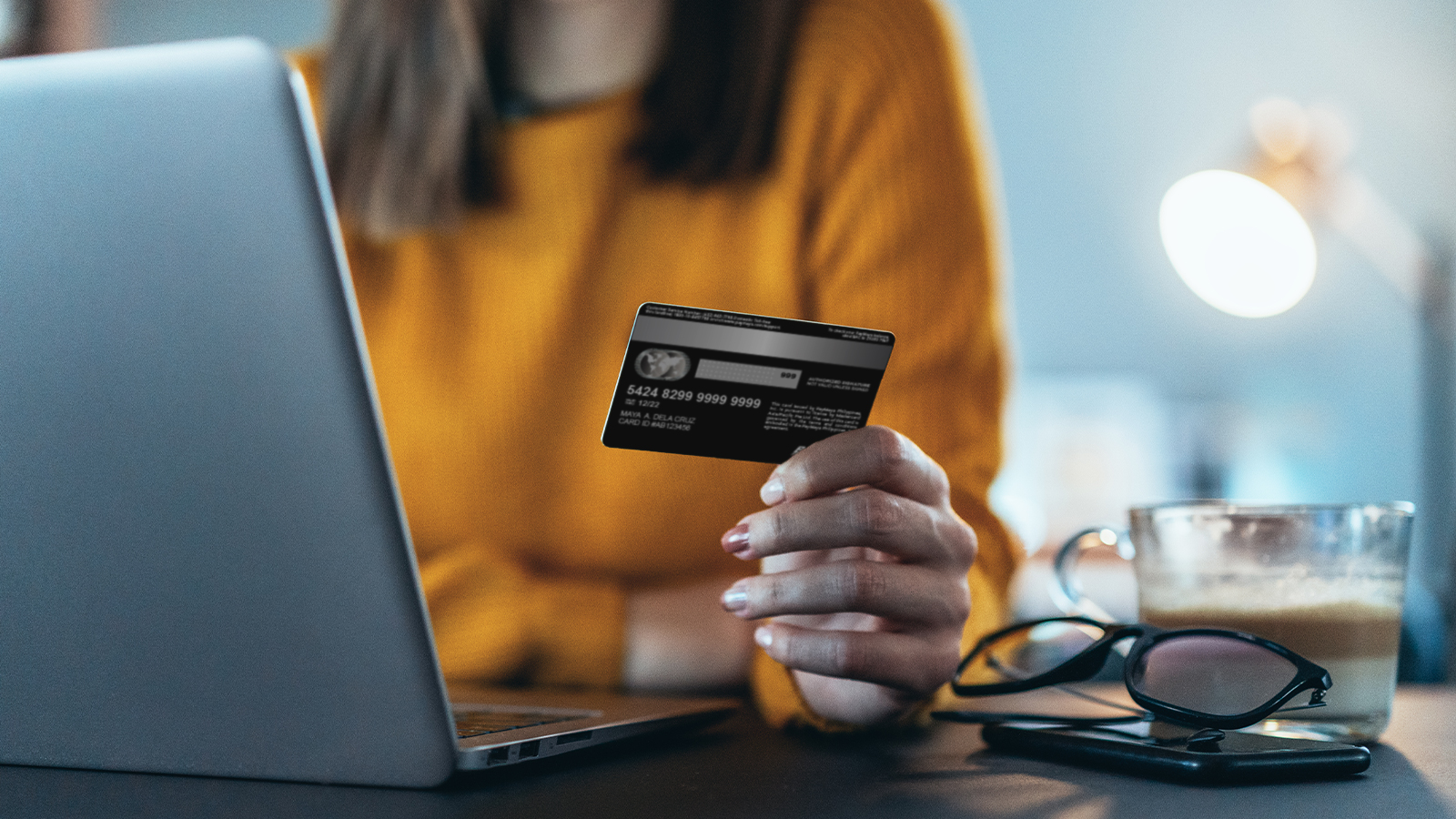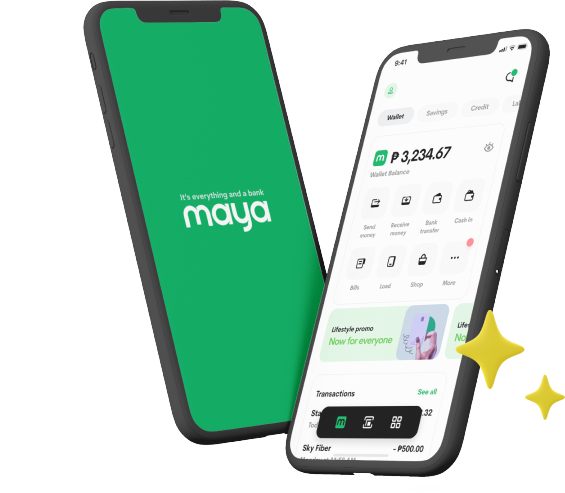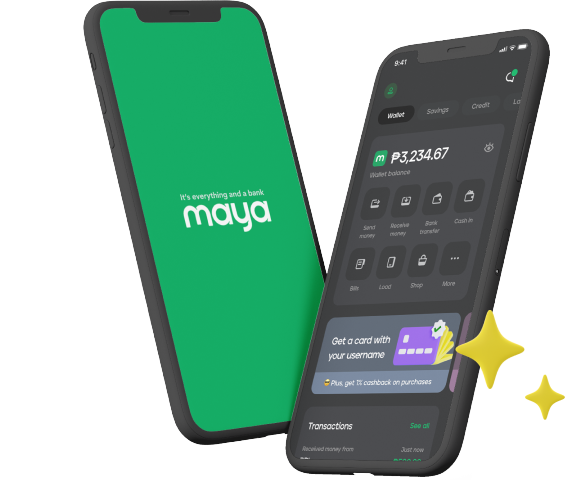- Home
- Services
- User Guide
- All Guides
- Activate Virtual Card
- Bank Transfer
- Bills Payment
- Cash In
- Claim Remittance
- Create an Account
- Crypto
- Email Verification
- Gaming
- Get a Maya Card
- Get Protected
- Link Physical Card
- Mobile Prepaid Load
- Mobile Data
- Pay using Maya Card
- Pay with Maya online
- Pay with QR
- Save
- Send Money
- Funds
- Travel with Maya
- Upgrade Account
- Use Abroad
- Deals
- Store
- Partner Merchants
- Stories
- About Maya
- Help & Support
- Contact Us
- Home
- Services
- User Guide
- All Guides
- Link Physical Card
- Mobile Data
- Activate Virtual Card
- Mobile Prepaid Load
- Bank Transfer
- Pay using Maya Card
- Bills Payment
- Pay with Maya online
- Cash In
- Pay with QR
- Claim Remittance
- Create an Account
- Save
- Crypto
- Send Money
- Email Verification
- Send Money via @Username
- Funds
- Travel with Maya
- Gaming
- Get a Maya Card
- Use Abroad
- Get Protected
- Deals
- Help & Support
- Store
- Partner Merchants
- Stories
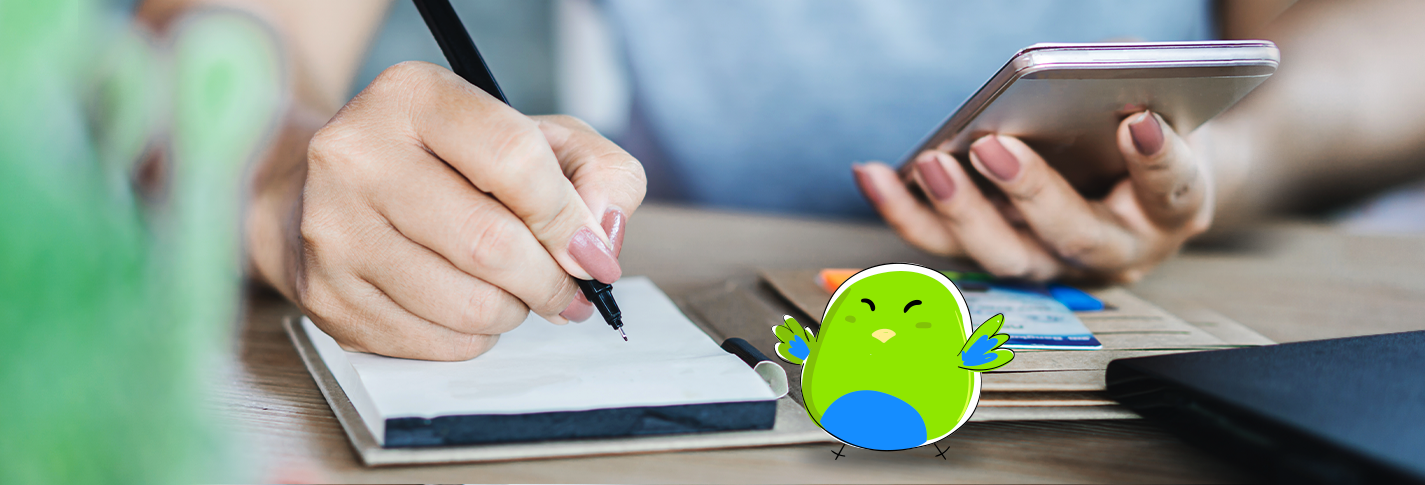
With the COVID-19 pandemic forcing governments all over the world to shut down borders and impose lockdowns, the economy has suffered a huge blow. In the Philippines, particularly in Metro Manila, many businesses have suffered huge losses and economic activities remain limited.
The situation is hardly ideal for Filipinos, many of whom live paycheck to paycheck or only have one source of income. There are also those who are employed under a no work, no pay scheme or have recently been laid-off due to cost-cutting measures. In short, financial difficulties have made life tougher in these uncertain times.
To help ease the burden, here are some budgeting tips to maximize every peso of your income and protect your finances.
Track Your Spending
One of the best ways to save money and stretch your budget is to track how you spend your income. If you know exactly where your money goes, you can easily make adjustments to ensure that you don’t overspend.
A spreadsheet application is more than sufficient to help you monitor your expenses. Look up tutorials online for adding macros and other useful formulas so you can create an automated and personalized system. There are also plenty of free budgeting apps with extra features such as budget projections. Some apps also have a function that allows you to set an alarm to let you know if you’re about to hit your budget limit. (Do note that some apps are free to download but require either a subscription or a one-time payment to use their full suite of features.)
Pay Bills Online
With quarantine measures still in effect, more and more Filipinos are using digital means to pay their bills. E-wallet apps like Maya make such transactions even more convenient, since you can settle all your dues using just one platform. In addition, using applications like Maya to pay your bills comes with other benefits. These include earning loyalty, cashback rewards, and more.
Paying your bills online is also much safer during a pandemic. It minimizes your outside exposure, which in turn minimizes the risk of contracting the disease. Online bills payments also reduce the need to touch ATMs and physical money, which can also carry virus particles.
Limit the Use of Credit Cards
For those with credit cards, it might be ideal to limit their usage during the quarantine period. This is because credit cards can give you that sense of having more money than you actually have, which can lead to overspending. Use cash or digital wallets as much as possible to pay for your purchases, whether you’re buying online or from physical stores. Doing so makes you more mindful of prices, which helps stretch your budget. Limiting the use of your credit card also ensures that you have something to fall back on in case of emergencies.
Try the Envelope System
If you’re more of a visual person and likes budgeting with physical money, the envelope system might be helpful. This entails the use of envelopes or other simple containers where you distribute the cash you have on hand. The basic system includes fixed major expenses such as various utility bills, rent, savings and/or investments, as well as emergency funds. Those with children should add one for tuition fees and other school expenses. Some people also add an envelope for leisure expenses, but you can definitely reallocate this for more important expenses. Don’t forget to monitor how much money is left after you pay your dues.
Be Smart About Online Shopping
Online shopping has never been so tempting, especially now that even supermarkets offer such an option. It’s so easy to open a new tab and click “add to cart.” What’s more, the stress and worry can trigger that impulse to shop. Retail therapy can make you feel good, for sure, but it can also hurt your wallet.
To stop yourself from overspending online, make sure to set strict limits, especially on non-essentials. You should also have a budget cap for food and other household necessities. Consider deleting your saved payment information in online marketplaces as well. The extra effort of inputting your details might dissuade you from being a click-happy shopper.
You should also treat online shopping like regular shopping, in that you should do it on a schedule. If you go to the supermarket once every two weeks, then you should also visit an online supermarket once every two weeks. Finally, consider unsubscribing from email notifications and newsletters from your favorite retail stores to reduce temptation. Once the situation normalizes, you can easily opt in again.
Take Advantage of Promotions
Do you have loyalty or rewards cards from different stores? It’s time to use all those points you’ve accumulated if you haven’t yet. Membership cards may also include exclusive discounts, so be sure to check those out and opt in to save money. If you’re signing up for a new service, take advantage of referral codes or first-time user promos.
Restaurants, pharmacies, and convenience stores also have their own loyalty programs and occasional sales. Sometimes, they also give away coupons that come with special deals. Be patient in hunting for such offers and don’t be shy about using them. The key is to find truly useful ones and to not just grab any promo that you come across. Remember that every peso counts, especially in a pandemic.
Cut Back on Non-Essentials
Cutting back on non-essential purchases is relatively easier during the community quarantine because non-essential businesses are closed. However, you might not notice that you’re also spending on miscellaneous items whenever you’re shopping for your basic needs. For example, you might add a couple of bottles of soda or a bag of chips in your cart. These are small purchases, but the costs can quickly add up.
Go back to your budget tracker and reevaluate how you spend your money. You might be surprised about how much you spend on extras. Make sure that the essentials are given top priority. But set aside an amount for occasional treats so you don’t feel deprived. And make sure that you don’t dip into your savings for more unnecessary expenses.
Buy in Bulk
Buying in bulk not only saves you from multiple trips to the store, but also nets you more savings in general. If you have ample freezer storage, you can bulk-buy chicken breasts, pork chops, and other pre-cut meats. These should last for a couple of months as long as the temperature is right. You should also stock up on canned goods—just remember not to hoard! You can also buy coffee, tea, cereals, pasta, and rice in bulk. With proper storage, these products can last for years.
For non-perishables, you should definitely bulk-buy shampoo and conditioner, bath soap, tissue rolls, and laundry detergent. Again, remember not to hoard. A good tip is to wait for online sales of these non-perishable goods to further stretch your budget. Buy the largest containers, if you can, and make sure that you store them properly to maximize their shelf life.
Batch Cook
Cooking your own food definitely costs less than getting your food delivered. To make it even more cost-effective, batch cook your meals. You can do this during the weekends when you have more time. Batch cooking can save you a lot of effort; you also get rid of that “problem” of always wondering what you’re going to eat or cook for lunch or dinner. Moreover, batch cooking can save you money in terms of LPG and electricity consumption.
Adjust Your Aircon’s Thermostat
If you have an air conditioner at home, it’s best to keep it at 23°C to 25°C. Doing this results in up to 35% savings in your electricity bill, as compared to using colder temperature settings. In addition, make sure that you maximize your aircon’s timer function. Once the unit shuts off, turn on the electric fan to circulate the cold air.
You should also regularly clean your aircon’s filters to ensure its optimum performance. If the filter is clogged with dust, it reduces your aircon’s energy and airflow efficiency. Use a brush to get most of the dirt off, then wash the filter using clean water. Let the filter dry completely before putting it back into your air conditioner.
Wash Full Loads of Laundry
Washing one full load of laundry in your washing machine is much more energy-efficient than doing two half-loads at a time. This is in addition to being more Earth-friendly, since washing one full load consumes less water. Remember, though, that washing a full load doesn’t mean that you should pack your washing machine full to the brim. Leave about 6 to 10 inches of space on top, whether you have a front- or top-loading model. This will ensure that the clothes have enough room to spin around and get clean. It also prevents the motor from getting overworked (which you certainly don’t want to happen when you’re quarantined). If you absolutely must wash a small batch of clothes, pay attention to the water level to minimize waste.
Schedule Your Own Earth Hour
With most if not every member of the family staying at home during quarantine, your appliances are all most likely getting used for longer hours. This then results in higher electricity bills. To reduce your consumption, schedule your own mini versions of Earth Hour at home. For example, if you have some space in your backyard, go outside and play with your kids. Turn off the TV for an hour and instead play some cards or board games. Gather the family in one room, say the living room or the master bedroom, and read some books or simply have a catch-up session. Spending some offline time for a couple of hours won’t just reduce your energy consumption. It will also give you a much-needed break from the monotony and stress of being cooped up.
Don’t Stress Yourself
It’s perfectly normal to be worried about your finances. After all, these are difficult times that most if not everyone haven’t dealt with before. However, don’t let your stress get out of hand. Try to relax and give your time to process your conflicting emotions. Remember that stress can alter your perception about what your necessities are. This can result in overspending and even panic-buying. Before you make any money-related decision, make sure you’re calm and well-prepared.
Create a Plan for Delayed Payments
To help the public manage their finances, banks and utility companies extended payment deadlines for loan and bill payments. If you took advantage of these extensions to give your finances some breathing room, make sure to plan how you’re going to pay afterwards. Note all the payments that you’ve decided to defer and prioritize them according to their due dates.
The next step is to figure out the amount you need. You need to make sure that you have enough money to settle the payments, without ruining your current budget. If you can, ask your lenders for a further extension. Of course, make sure that you’re aware of the conditions of a new payment deadline. Usually, this will entail a larger interest payment. Consider your current financial status and then make a projection so you won’t experience bill shocks.
Another thing you have to focus on under quarantine is your overall health. Don’t just focus on your physical health, but also on your mental and emotional well-being, too. Indeed, your health and safety should come first. It won’t do you any good if you manage to properly budget your income but end up getting sick due to stress. If you have to spend a bit of money for your health and peace of mind, then do so. You can recover from financial losses, but it’s so much harder to regain your good health.
That being said, keep these tips in mind to help you manage your finances while under quarantine. You can also use most of the advice in this list beyond a pandemic. With some careful planning and the help of technology, managing your income will be a little easier.
References
https://www.moneymanagement.org/blog/our-favorite-quarantine-budget-hacks
You might also like
These Stories on Financial Literacy
Maya Customer Hotline: (+632) 8845-7788
Domestic Toll-Free: 1-800-1084-57788
Mobile: Dial *788 using your Smart mobile phone
Domestic Toll-Free: 1-800-1084-57788
Mobile: Dial *788 using your Smart mobile phone
Maya is powered by the country's only end-to-end digital payments company Maya Philippines, Inc. and Maya Bank, Inc. for digital banking services. Maya Philippines, Inc. and Maya Bank, Inc. are regulated by the Bangko Sentral ng Pilipinas.
www.bsp.gov.ph
Scan to download
the Maya app
the Maya app
© Copyright Maya 2022 All Rights Reserved.

